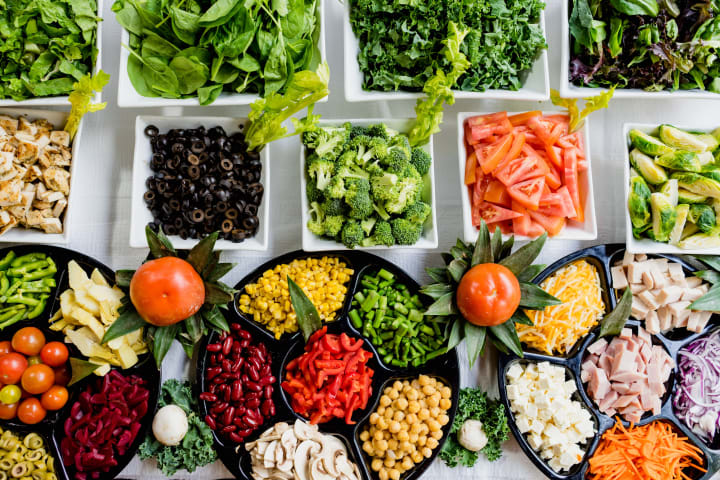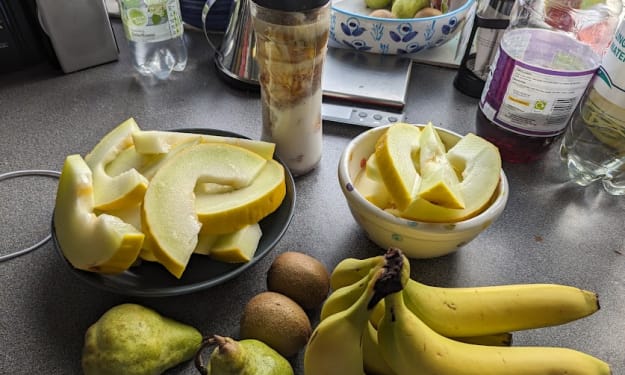Uncovering the Importance of Food Processing in Today’s World
The benefits to consumers, businesses, and the environment

Food processing refers to all the ways we turn raw ingredients into the food we can eat. These methods include a wide range of techniques such as cooking, baking, canning, freezing, drying, and packaging. Food processing has been used throughout history to preserve food, improve its taste, and extend its shelf life. Today, food processing has become an essential aspect of the food industry, providing a safe and reliable source of food for people all around the world.
It’s hard to overstate how important food processing is. Not only does it make food more palatable and convenient, but it also plays a crucial role in ensuring food safety and reducing the risk of foodborne illness. Food processing also has a significant impact on the environment and the economy. It helps to reduce food waste by extending the shelf life of products, and it also allows for the transportation and storage of food over long distances.
1. Nutritional benefit of food processing

Extending shelf life
Food processing is an essential step in ensuring that the food we eat is safe and nutritious. One of the most significant benefits of food processing is the preservation of nutrients. By processing food, we are able to extend its shelf life, which in turn allows us to consume it at a later time without losing its nutritional value. This is particularly important for perishable foods such as fruits and vegetables that can quickly lose their nutritional value if not properly stored.
Diversity our diet
Food processing enables us to have access to a wider variety of foods than our ancestors. With the ability to safely preserve and package foods, we can now transport them from all over the world to our homes. We are no longer limited to only locally produced foods or to specific seasons. This increased choice allows us to have a more diverse diet that is more likely to provide all the necessary nutrients for good health.
Preserves nutrition
Modern preservation methods not only preserve the quality of food but also its nutritional properties, certain vitamins, for example, are easily lost during storage due to oxidation. Preservation and packaging techniques are used to stabilize these important nutrients and safe food additives are also used to prevent oxidation.
Increase bioavailability
Another important benefit of food processing is the enhancement of the bioavailability of nutrients. Bioavailability is the amount of a nutrient or substance that can be absorbed and used by the body. Food processing methods such as cooking, blending and pureeing can break down food and make it easier for our bodies to absorb and utilize the nutrients. This is particularly important for people who have trouble digesting certain foods or for those who have difficulty swallowing.
2. Food safety and sanitation

The elimination of foodborne illness, control of bacterial and fungal growth, and reduction of spoilage are all important benefits of food processing that help to ensure the safety and wholesomeness of the food supply. Let’s look at a few ways this can be achieved/
Heating
Heat treatment involves exposing food to high temperatures, usually above the boiling point of water (100°C or 212°F), to kill bacteria, viruses, and other harmful microorganisms that may cause food poisoning. Different types of heat treatment are used depending on the type of food and the microorganisms that may be present. For example, pasteurization is a heat treatment process that is used to kill bacteria in milk and other liquid products. Sterilization is a more intense process that is used to kill all microorganisms, including bacteria, viruses, and spores, in order to make a product shelf-stable.
Adding preservatives
These are substances that are added to food to prevent the growth of harmful microorganisms. Preservatives work by creating an environment that is not ideal for the growth of these microorganisms, by reducing the water activity, acidity, or oxygen levels in the food. Some common preservatives used in food processing include salt, vinegar, and citric acid.
Packaging
Packaging helps to protect food from moisture and oxygen that can cause spoilage. Moisture can lead to the growth of bacteria and fungi, and oxygen can cause oxidation, which can cause discoloration, off-flavors, and loss of nutrients in food. Packaging materials such as aluminum foil, plastic wrap, and airtight containers can help to keep food fresh by preventing the entry of air and moisture.
Freezing
Freezing works by slowing down the growth of bacteria and fungi, which are responsible for causing spoilage in food. By reducing the temperature of food, the activity of enzymes and microorganisms is slowed down, which reduces the rate of spoilage. This is particularly useful for perishable foods such as meats, dairy products, and fruits and vegetables that can spoil quickly if not stored properly.
3. Economic benefits

More market opportunities for food manufacturers
Food preservation allows for improved transportation and storage of food, making it easier for food to be distributed to remote areas. With the ability to preserve food for longer, it can be sold and transported over longer distances, creating more market opportunities for farmers and food manufacturers. This in turn can lead to increased economic growth and job creation in the food industry.
Lower cost of production
Food processing can also lower production costs by using raw materials that might otherwise be wasted and increasing the efficiency of food production. Furthermore, processed foods can be sold at a higher price point than unprocessed foods, which can lead to higher profit margins for food manufacturers.
The increased shelf life of processed foods also allows for greater flexibility in production and distribution. Farmers and food producers can plan their harvests and production schedules with more certainty, knowing that their products will have a longer shelf life. This can lead to lower costs, increased efficiency, and a more stable food supply.
Increase job opportunities
Furthermore, food processing can also create jobs and stimulate economic growth in many communities. Food processing companies can be a source of employment and income, and they can also bring in additional economic activity through the purchase of raw materials and the sale of finished products.
4. Environmental benefits

Reduce GHG emissions
As mentioned previously, food processing helps in preserving food for a longer period of time, which allows for more efficient distribution and storage. This can help reduce food waste by preventing spoilage and making it possible to use food that would otherwise go to waste. This is important because food waste is not only a financial burden but also a significant contributor to environmental problems. When food rots in landfills, it releases methane, a potent greenhouse gas. By reducing food waste, food processing can play an important role in reducing greenhouse gas emissions and preserving resources.
Reduce carbon footprint
Processing food at a central facility is an efficient way to reduce the amount of transportation needed to get food from the farm to the consumer. By processing food at a central facility, the amount of travel that is needed to get the food to the consumer is reduced, which in turn reduces the number of carbon emissions that are produced.
Additionally, by reducing food waste, food processing also helps to decrease the carbon footprint associated with food production. When food is processed at a central facility, it can be packaged and stored in a way that reduces spoilage and waste. This means that less food needs to be produced to meet the demand, which reduces the number of resources, energy, and water needed to produce food.
References
- https://www.foodsystemprimer.org/food-processing
- https://www.eufic.org/en/food-production/article/processed-food-qa
- https://www.betterhealth.vic.gov.au/health/healthyliving/food-processing-and-nutrition
Read more of my work here:
About the Creator
Eshan Samaranayake
Exploring how biotech, food tech, alternative proteins, and business can help develop a sustainable world 🌏 https://linktr.ee/eshan.s






Comments
There are no comments for this story
Be the first to respond and start the conversation.